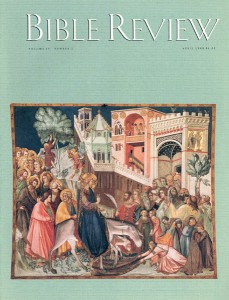A New Challenge to the Documentary Hypothesis
Have modern scholars failed to appreciate the overall structure in Genesis 1–11?
The documentary hypothesis states that the Pentateuch, the first five books of the Bible, is a compilation of several originally independent documents. Ancient editors or redactors collected these documents, which had been composed at various points in the history of the ancient community, and combined them in a single extended narrative. In this way the Pentateuch as we know it came into being. This hypothesis is one of the fundamental assumptions of modern biblical scholarship. In one form or another, it has been accepted by most scholars since the 18th century, when the traditional view that Moses wrote the first five books of the Bible was widely questioned for the first time.
A recent book by Isaac M. Kikawada and Arthur Quinna offers a thorough-going challenge to the documentary hypothesis. Kikawada is a Japanese biblical scholar who holds the position of visiting lecturer in the Department of Near Eastern Studies at the University of California, Berkeley, where Quinn is a professor of rhetoric. They believe that the documentary hypothesis has outlived its usefulness and, indeed, that a case can be made for viewing the Pentateuch as the work of a single author. Their book introduces this case by presenting a new analysis of the biblical primeval history, Genesis 1–11, a section chosen because of the central role it played in the development of the documentary hypothesis.
Already a library member? Log in here.
Institution user? Log in with your IP address.

